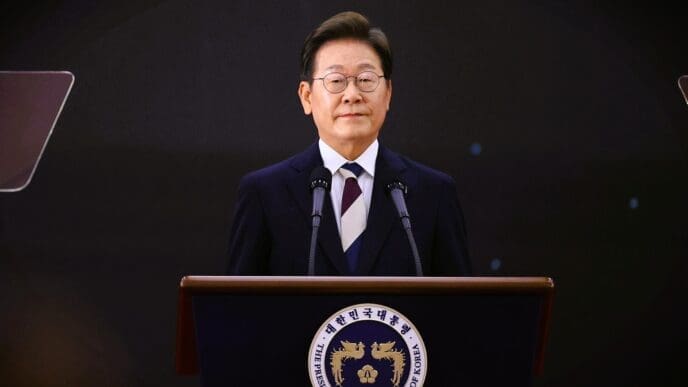A recent study by the European Policy Centre (EPC) highlights financial insecurity among young men as a contributing factor to the rise of anti-feminist discourse. The report indicates that working-class men without university degrees have been significantly affected by declining wealth and employment rates over the past two decades. Young men face challenges in income, wealth, purchasing power, housing access, and education, falling behind their female counterparts in these areas.
The gender gap in education is widening in favor of women, with 48% of people aged 25 to 34 holding a degree, yet only 37% of them are men. Young men from less privileged backgrounds have also been impacted by the rise of automation in the workforce, as manual jobs are increasingly replaced by machines and software.
Despite earning on average 12.7% less than men in the EU, young women are showing a trend towards higher income levels than men in certain countries, including Finland, Malta, Greece, France, and Belgium. This economic shift challenges traditional markers of masculinity associated with work.
Evidently, economic difficulties have led some young male voters towards far-right political parties. Data from European Elections Studies (EES) reveals that 17.2% of young men under 25 voted for far-right parties in the last European Parliament elections, compared to 9.5% of young women. This political divide is influencing policy directions, with young women more inclined towards progressive parties.
The radicalization of young men could affect policies on the environment, migration, and economic redistribution through the election of extremist parties. To counteract this trend and protect women’s rights, the study suggests that addressing economic challenges for all, particularly through housing policies and job market prospects, is crucial. Efforts to improve women’s representation, income, and security must also be intensified.
Your World Now
The findings of the EPC report indicate a significant societal shift that could have far-reaching implications. As young men face economic challenges, their political inclinations may lead to changes in policy-making that affect various aspects of daily life, from environmental regulations to immigration laws. This shift may also influence societal norms and expectations, particularly regarding gender roles and economic participation.
Communities may experience increased polarization as differing economic realities and political ideologies create divides. This polarization could affect community cohesion and the effectiveness of public policies. By addressing economic disparities and enhancing opportunities, particularly for young men, societies can work towards more balanced and equitable growth, fostering an environment where all individuals can thrive.
Understanding these dynamics is crucial for policymakers, educators, and community leaders. By focusing on inclusive economic policies and educational opportunities, societies can mitigate the negative effects of economic insecurity and political polarization, leading to a more harmonious and prosperous future for all.











